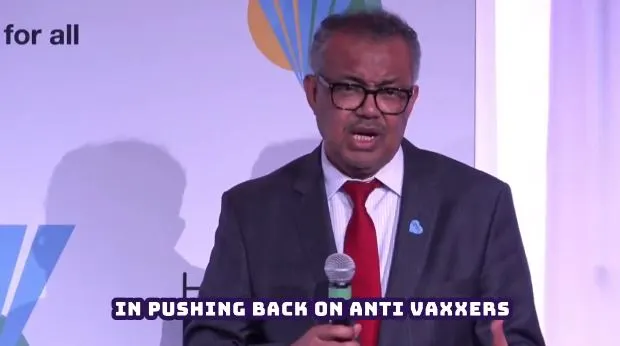Carbon Offsets Are a ‘Scam’ — Here’s Why
Many of the world’s largest companies rely on carbon offsets to reach “net zero” emissions goals. However, investigations reveal that more than 90% of these offsets are likely “phantom credits” that allow corporations to continue polluting while claiming to lower their carbon footprints.
Published in The Defender June 3, 2024, originally from The New Lede by Bill Walker
Apple touts the newest model of the Apple Watch as its first “carbon neutral” product – made with “100% clean energy” and “recycled and renewable materials” and shipped by “lower-carbon modes” instead of by air.
But a close look at the watch’s environmental specs shows that reducing emissions of greenhouse gases in its manufacturing and supply chain only goes so far.
More than one-fifth of the claimed savings in emissions are attributed to Apple’s purchase of so-called climate offsets, including shares in a project to plant eucalyptus timber plantations in eastern Paraguay, far from its Silicon Valley headquarters or its factories in China.
The project’s backers say the climate offsets it is buying reflect a reduction in eastern Paraguay’s emissions from cattle ranching, a leading source of planet-heating methane.
But human rights groups say the scheme is driving peasant farmers from their land for little actual climate gain as most of the newly planted trees will be harvested quickly for consumer products.
Apple is but one of many corporate giants that have pledged to cut its company-wide emissions to “net zero” by 2030, joined by Google, Disney, Netflix and many more brands.
Even ExxonMobil, Shell, BP and Chevron — the multinational oil companies that are the biggest emitters of greenhouse gases in the last decade — say they will be net zero by 2050.
According to the nonprofit Net Zero Tracker, more than 1,000 of the world’s largest companies have publicly declared goals of net zero by midcentury or before.
To get there, most plan to claim their purchases of climate offsets, also known as carbon credits, as emissions reductions.
Through exchanges called verifiers or certifiers, companies buy, sell and trade shares in schemes that promise to reduce emissions, supposedly offsetting the climate pollution the companies can’t, or won’t, eliminate from their own operations.
The global offsets market is huge, worth more than $2 billion and expected to grow to $10 billion or more by 2030.
Under standards set by the 2015 Paris climate treaty, one carbon credit represents the reduction of 1 metric tonne (about 1.1 U.S. ton) of carbon dioxide or the equivalent climate-heating potential of other greenhouse gases, such as methane.
Through programs called cap-and-trade, many government regulators worldwide, including the California Air Resources Board, let regulated polluters buy carbon credits to meet some of their legally required emissions reductions. But like Apple, companies can also buy credits voluntarily, to bolster their net-zero claims.
The well-documented truth is that many offsets are worthless, failing to deliver the promised emissions reductions, or even causing harm. Credits may be sold for reductions that would have happened anyway, without money from buyers of offsets.
To critics, offsets are greenwashing: a scam that lets polluters keep polluting while claiming to lower their carbon footprints.
In recent years, high-profile exposés of the offsets industry have revealed their bogus claims and corruption.
Last year, an investigation by The Guardian and the German weekly Die Zeit found that more than 90% of the forest conservation credits sold by the world’s biggest offsets exchange — Verra, which verified Apple’s Paraguay project — “are likely to be ‘phantom credits’ and do not represent genuine carbon reductions.”
Drawing on two academic studies examining more than 50 projects in the Amazon, the investigation found that while Verra certified almost 95 million credits, only 5.5 million credits represented real emissions reductions.
A 2013 investigation by the nonprofit Corporate Accountability found that 93% of the voluntary carbon offsets Chevron bought from 2020 to 2022 “appear to be junk,” and at least 40% are linked to allegations of “inflicting harm on communities and spurring degradation of ecosystems.”
One project to build a huge hydropower dam and reservoir in Colombia flooded more than 17,000 acres of forest and cropland and displaced thousands of small farmers and fishers. Local people opposing the dam reported threats, disappearances and even killings.
Now a bill in the California Legislature aims to rein in the “Wild West” of the largely unregulated offsets market.
Senate Bill 1036, introduced by state Sen. Monique Limón (D-Calif.), would use the state’s false advertising law to fine offsets traders and exchanges up to $500,000 for selling California companies carbon credits that don’t live up to their claims.
The bill passed the state Senate on May 16 by a large margin and will now be considered by the state Assembly.
“There’s no agreement on any standards at this moment,” Limón told Politico. “This bill is responding to the fact that consumers have lost trust in a voluntary offset market.”
The proposed law would be the first of its kind in the U.S. But its future is uncertain: Last year, California Gov. Gavin Newsom vetoed an earlier version of the bill, citing concerns that it could “inadvertently capture well-intentioned sellers and verifiers of voluntary offsets.”
Limón’s bill would join another new California law regulating the voluntary offsets market.
Assembly Bill 1305, which took effect in January, requires sellers of credits to report on their websites detailed information to demonstrate a project’s effectiveness. It requires buyers of credits who make “net zero” or “carbon neutral” claims to report similar details.
On May 28, the Biden administration laid out unenforceable, voluntary guidelines for “high-quality” carbon credits.
“Put simply, stakeholders must be certain that one credit truly represents one tonne of carbon dioxide (or its equivalent) reduced or removed from the atmosphere, beyond what would have otherwise occurred,” Treasury Secretary Janet Yellen and other administration officials said in a joint statement.
But these are baby steps. Barbara Haya, director of the Berkeley Carbon Trading Project at the University of California, Berkeley, told The Guardian that after studying offsets for 20 years, she has come to believe that the offset market is “broken.”
Instead of making deceptive net zero claims, companies that want to show environmental commitment should focus on cutting their own emissions as much as possible — not only in their “upstream” supply and manufacturing chains but from the “downstream” use and disposal of their products.
It’s absurd for Chevron to use offsets to say it “aspires” to net zero by 2050 when the burning of gasoline and other fossil fuels is responsible for the vast majority of greenhouse gas emissions.
We have a short window of time to head off the most catastrophic effects of climate change, and the only way to do it quickly is to stop burning fossil fuels.
Originally published by The New Lede.
The views and opinions expressed in this article are those of the authors and do not necessarily reflect the views of Children’s Health Defense.
Suggest a correction






